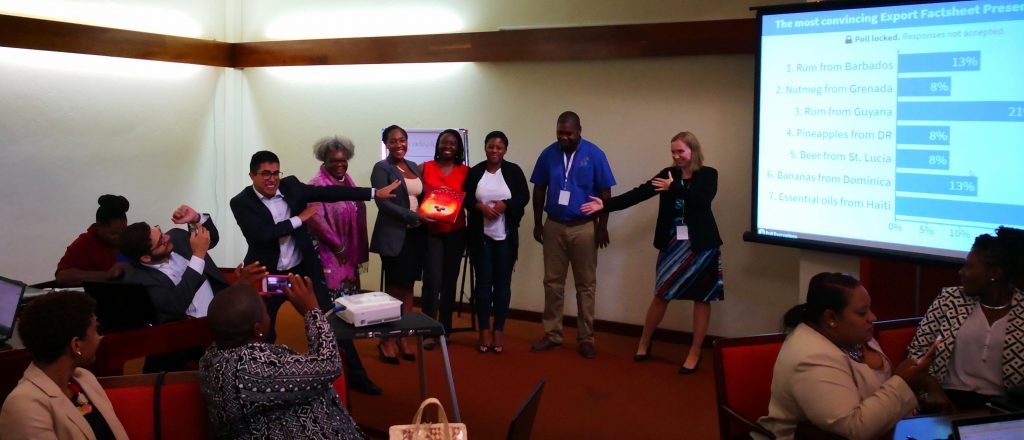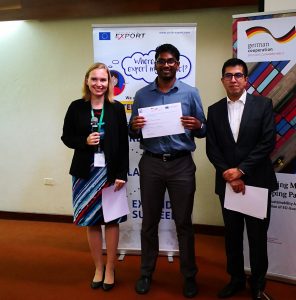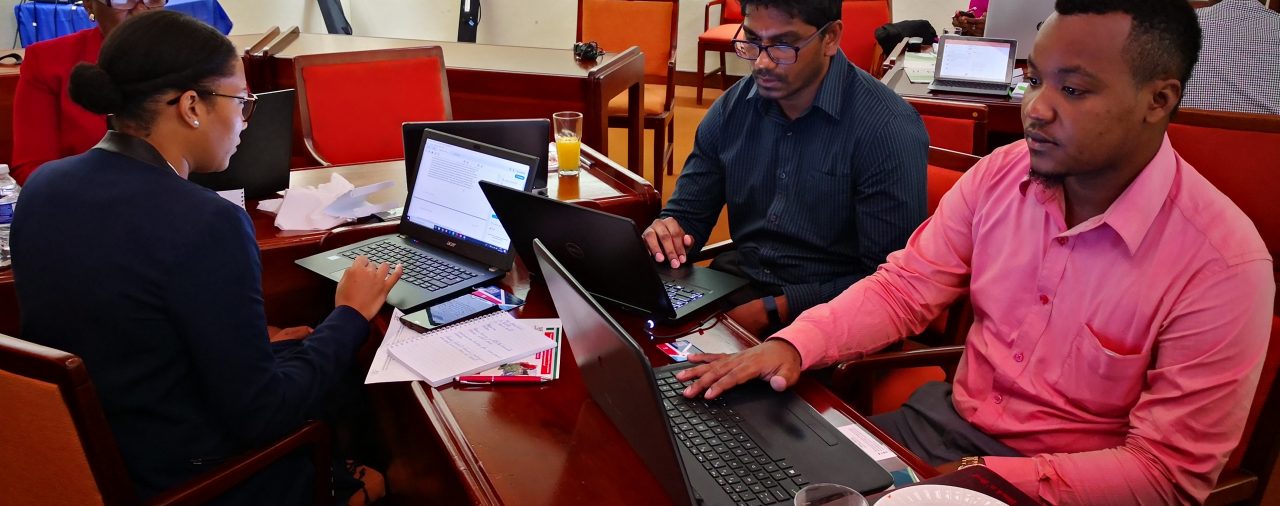Where has Dhanraj Harrypersad, Manager Monitoring and Research been for the week? The Caribbean Export Development Agency (Caribbean Export) under the 11th European Development Fund (EDF) Regional Private Sector Development Programme (RPSDP), in collaboration with the International Trade Centre (ITC), and Deutsche Gesellschaft für Internationale Zusammenarbeit (GIZ) GmbH, convened the “Advanced Market Intelligence Training for Business Support Organizations” last week in Kingston, Jamaica at the Jamaica Conference Centre, from November 12 – 15, 2018.
The session was facilitated by the very competent staff of the ITC, Mr. Martin Lopez and Mrs. Anna Jankowska-Eriksen and well-coordinated by the Caribbean Export Staff.
See below some of the Major Takeaways Dhanraj identified, coming out of this session.

Thinking strategically requires realistic thinking for your plan or project to work.
For instance strategically you may want to get into the Brazilian Market but realistically its makes sense to look at cities like Manaus which are closer to existing markets of Guyana and Suriname but still have populations in excess of a million persons.
Sometimes the obvious can be wrong.
For instance you may think exporting wine to France is ridiculous because they make fine wine but the market is so sophisticated that they demand high quality wines from all over the world. So do not be so quick to dismiss possibilities.
Mandatory vs Voluntary Standards.
In most cases there is a focus on the mandatory standards to enter a market such as food safety but consumers in developed countries are paying closer attention to voluntary standards. A free range chicken in Switzerland can see for 3-4 times as much as a regular chicken. Voluntary standards present real opportunities for small companies in particular to attain these standards to differentiate themselves and also increase their margins and prices in the market. People now care about things like the environment, how workers are treated and how animals are treated and are willing to pay a premium for the products from companies who care as well. Did you know that some ethical standards go so far as to state the amount of time employees should have off to socialise with each other?
New tools to assist in the assessment of markets.
There are a bunch of tools which have been developed by the International Trade Centre to help trade support institutions and exporters to identify and assess markets. All the tools are free of charge and are worth a look. Some of the main ones are included below:
- Rules of origin facilitator – Helps you to determine how you prove the origin of your product according to the agreement. https://findrulesoforigin.org/
- Export Potential Map – Allows countries to determine their export potential for different products in different markets. It utilises supply, demand and ease of trade to work out your potential, actual exports and untapped potential. This does not mean that you can and should enter the market but it means that it should be investigated more. https://exportpotential.intracen.org/#/home
- Standards Map – This tool is not new but it is an interesting tool to help exporters to differentiate themselves in markets. There may be a hundred voluntary standards but the company should look at these the determine which possible and provides the greatest advantage for them in the market. http://www.standardsmap.org/identify
- Sustainability Map – Compares the different measures standards and trends in sustainability in 5 aspects – environment, social, economic, quality and ethics. It is also a networking tool but you must create an account to use this module. The tool allows for a self-assessment to determine how far you are from achieving the standard and what else you have to do to achieve it. https://sustainabilitymap.org/home
- Market Price information Portal – This database is very new to the ITC and offers pricing information across selected markets for selected products. Currently focuses on agricultural products and gets data from USFDA and from the independent research agency, Thomson and Reuters. Data is currently concentrated on agricultural data but it should be expanding soon as more sources are added. https://mpi.intracen.org/
Look forward to more from the Monitoring and Research Unit!


